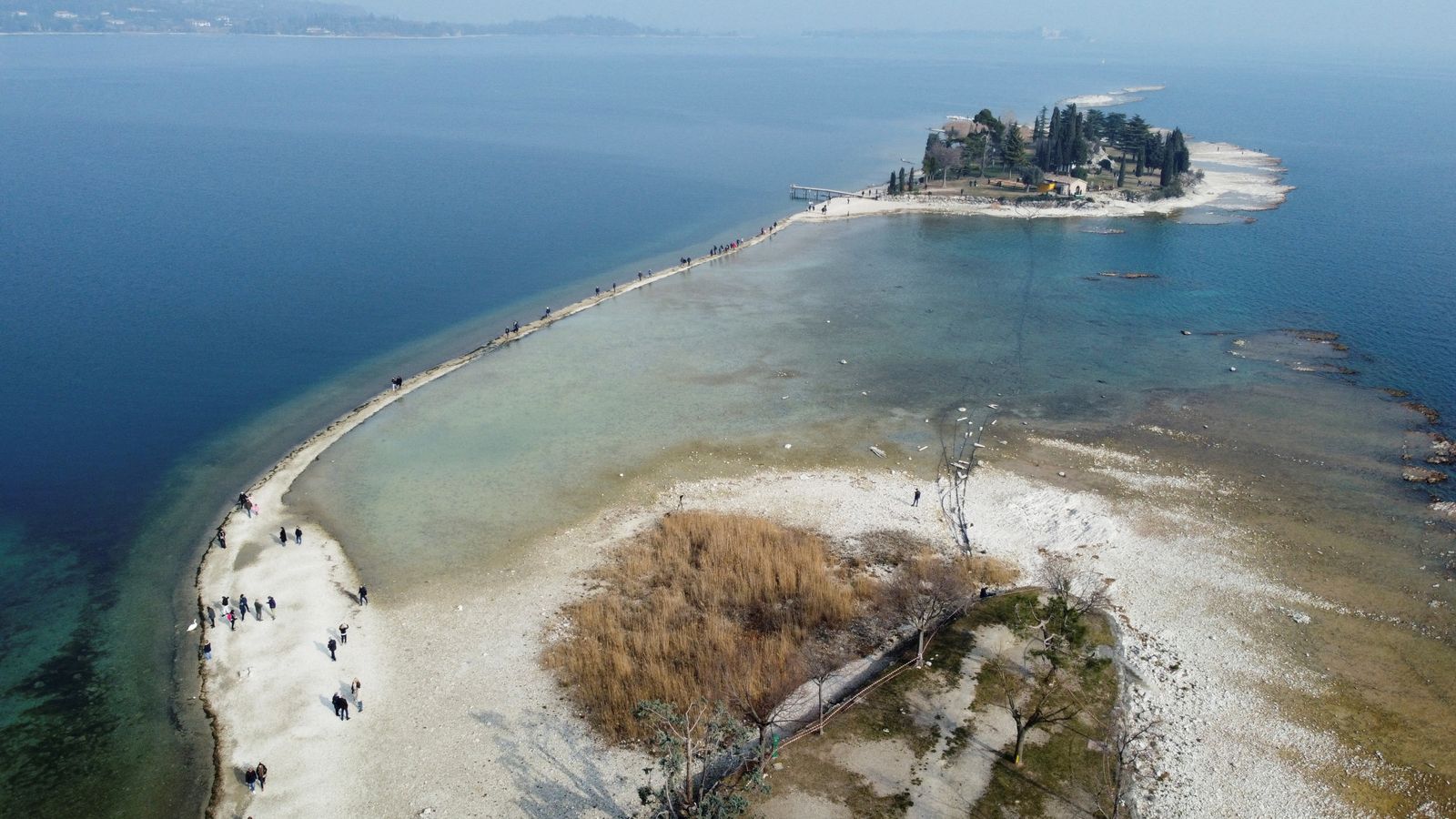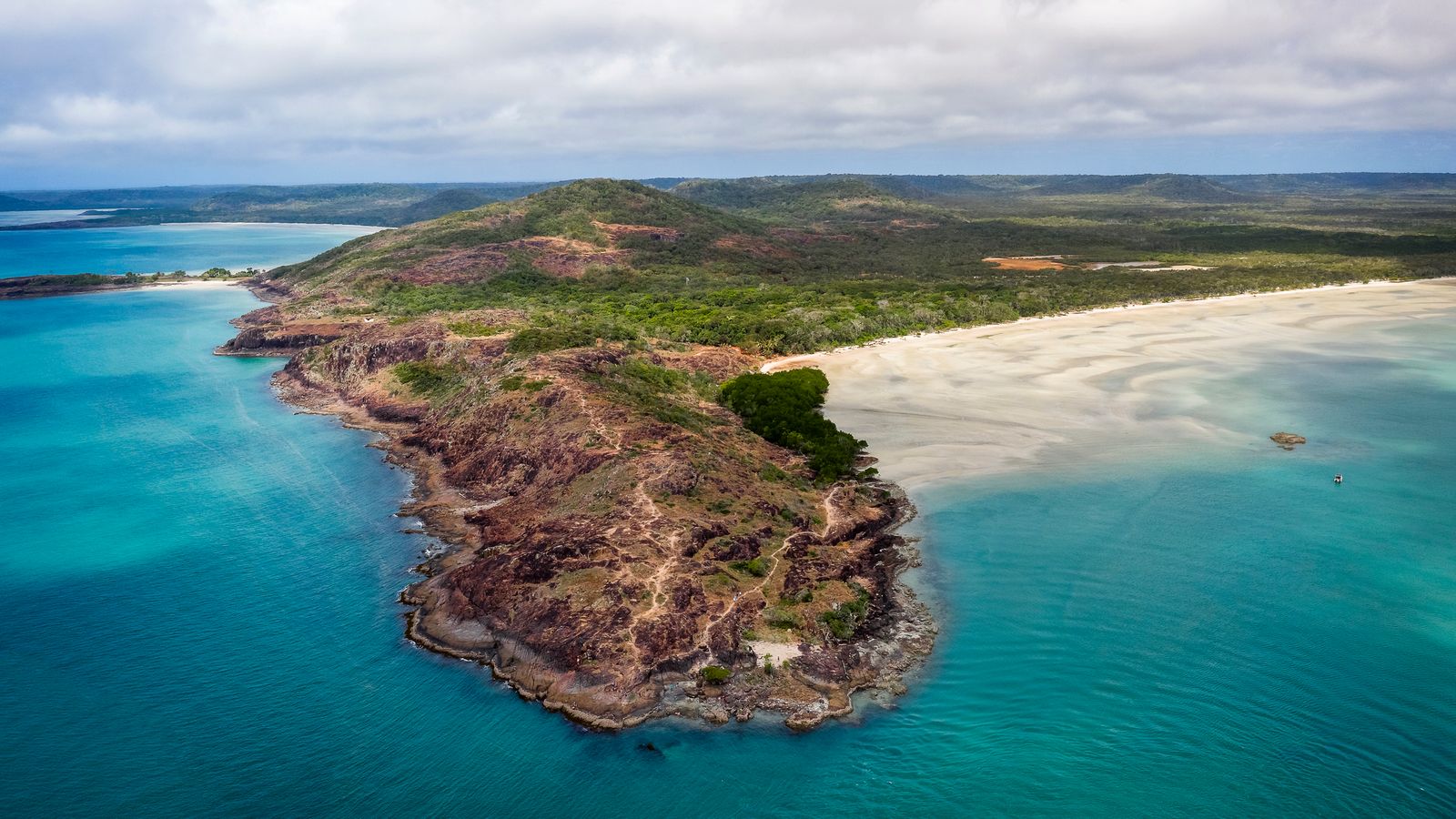Climate change is causing “hazard flips”, where areas that used to be prone to drought experience flooding, and vice versa.
The “whiplash effect” of these erratic extremes affects millions of people living in poverty, research by WaterAid reveals.
Analysis of satellite imagery and climate data by WaterAid in partnership with the universities of Cardiff and Bristol shows commmunities are being exposed to extremes they are not equipped to deal with.
Climate change will not create the same hazards across the world despite globally warming temperatures, co-lead researcher Professor Katerina Michaelides from Bristol University said.
“Instead, the hazard profile for any region is likely to change in unpredictable ways,” she said.
In northern Italy, the number of intense dry spells has more than doubled since 2000 – but these have been punctuated by extreme flooding, including deadly floods in May and June this year.
Before that, a winter of little snowfall left a walkway in Lake Garda exposed and Venice battling dry canals.
The same climate patterns have been seen in the southern Shabelle region of Ethiopia.
By contrast, over the last two decades, areas in Pakistan, Burkina Faso and Northern Ghana – normally associated with hotter, drier conditions – have flipped to become increasingly wetter and flood-prone.
The research examined flooding and drought hazards over the last 41 years across six countries: Pakistan, Ethiopia, Uganda, Burkina Faso, Ghana and Mozambique. Italy was included as a European comparison.
In general, the countries that used to experience frequent droughts that are now more prone to frequent flooding, while others historically prone to flooding now endure more frequent droughts.
Co-lead researcher, Professor Michael Singer from Cardiff University, warned these “hazard flips” are “something most places on the planet will have to address”.
Be the first to get Breaking News
Install the Sky News app for free
Read more from Sky News:
Australia agrees ‘groundbreaking’ pact to take climate refugees
‘Near certainty’ 2023 will be Earth’s hottest year on record
The consequences of the erratic extremes are “devastating” for communities, researchers warned – wiping out crops and livelihoods, damaging often-fragile water supply infrastructure, disrupting water supply services, and exposing people to disease and death.
Tim Wainwright, WaterAid’s chief executive, said: “For the world’s most vulnerable, this is a matter of life or death. We cannot let climate change wash away peoples’ futures.
“From drought-stricken farmlands to flood-ravaged settlements, communities in Pakistan, Burkina Faso, Ghana and Ethiopia are all experiencing alarming climate whiplash effects; Uganda is experiencing ever more catastrophic flooding and Mozambique a chaotic mix of both extremes.
“While we will all pay a price for global water stress, it’s those living on the frontline of the climate crisis who are paying for it now – their lives hanging in the balance.”
Read more:
The climate refugees forced to flee the Shabelle and other regions
Cyclone Idai may have killed 1,000 people in Mozambique
Pakistan flooding: Record rains threaten 4,500-year-old archaeological site
Click to subscribe to ClimateCast wherever you get your podcasts
In Uganda, the data showed the eastern region of Mbale was showing a significant tendency towards much wetter conditions, with unprecedented flooding over the last three years.
WaterAid spoke to retired primary school teacher Okecho Opondo, 70, who said the change in weather patterns was creating “total confusion”.
“The months that used to be rainy are now dry. When the rains come, they can be short yet heavy, leading to floods.
“On other occasions the rainy periods are too long, leading to destruction of infrastructure and crop failure. And then the dry periods can be very long, further leading to crop failure and hunger.”
In Mozambique, a 14-year-old called Kiequer said the floods had affected their education.
“I was traumatised by that February rain. When the sky gets cloudy, I always get scared. I don’t think that day of the floods will ever leave my imagination.”








